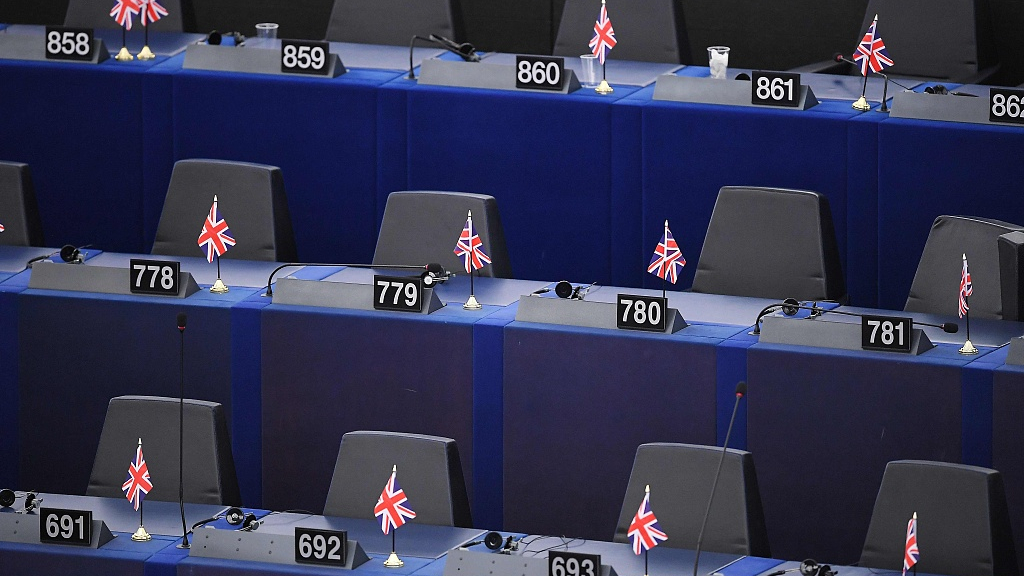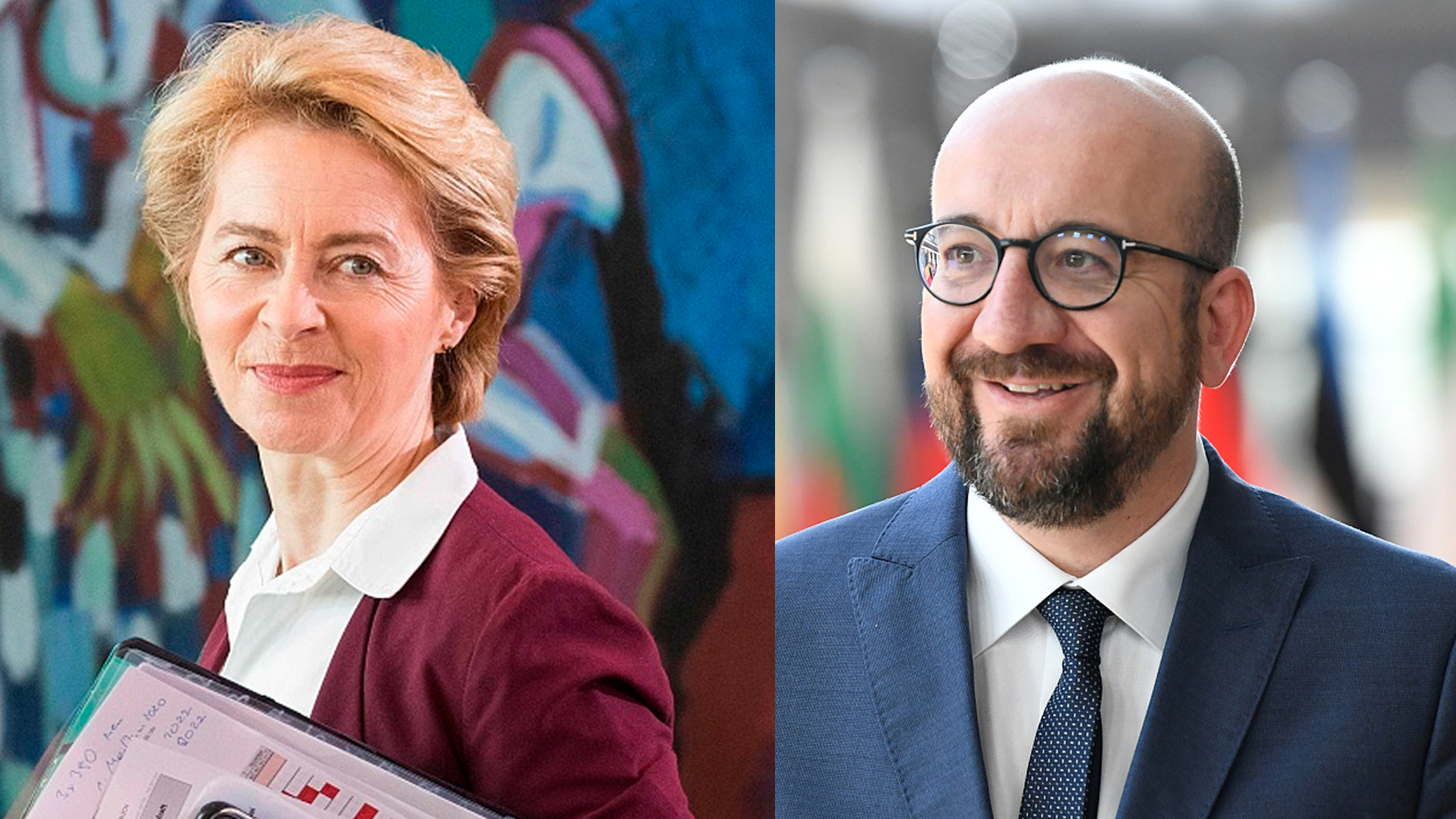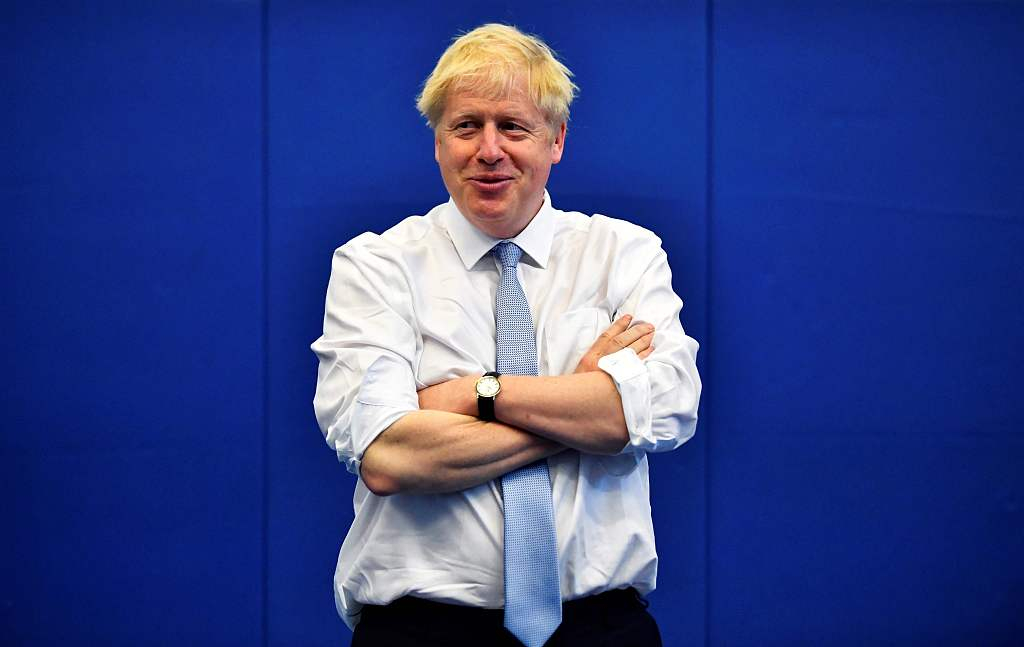

Editor's note: Chris Deacon is a postgraduate researcher in politics and international relations at the University of London and previously worked as an international commercial lawyer. The article reflects the author's opinion, and not necessarily the views of CGTN.
The European Council's nominations for the new leadership team of the European institutions were announced earlier this week. One of the most pressing policy areas for them to focus on immediately will be Brexit – so what can we expect from these individuals?
The most relevant roles for the Brexit issue will be the new President of the European Commission – for which the current German Defense Minister, Ursula von der Leyen, has been nominated – and the new President of the European Council – for which the current Belgian Prime Minister, Charles Michel, has been nominated.
These are still "nominations" at this stage because the Council's selections must be voted on by the European Parliament. Members of the European Parliament (MEPs) may be more likely than usual to deny the Council its appointments as the "Spitzenkandidaten" system appears to have been cast aside.
In this system, each party grouping in the European Parliament puts forward a "lead candidate" for the role of President of the Commission and, theoretically, the grouping that wins the most MEPs in the European elections also wins the race for President. The abandoning of this system makes a mockery of the series of debates between the Spitzenkandidaten held in the run-up to the European elections.
The Green grouping has been particularly vocal in their criticism, calling the process of nomination a "stitch-up" and publicly questioning why they should vote for any of the Council's proposed candidates.
Provided these candidates' nominations are approved, however – and this still seems most likely at this stage – it appears that there may well be a clash of opinions between Ms. von der Leyen and Mr. Michel on the issue of Brexit.

Ursula von der Leyen (L), German defense minister, and Charles Michel (R), prime minister of Belgium. /VCG Photo
Their views and approaches to this issue are paramount. The European Commission is in charge of negotiating the withdrawal agreement and, thereafter, the future relationship with the United Kingdom. The Commission President, therefore, has a great deal of influence over the direction in which the Brexit negotiations might proceed – particularly as to whether any allowance will be made to renegotiate elements of Theresa May’s withdrawal agreement, as the leading candidates to take over her premiership apparently aim to do.
At the same time, the European Council has an important role in negotiating and agreeing upon any extensions to the Article 50 period. Most analysts do not expect that any renegotiation will be possible before the current deadline of October 31 and, although the likely successor to Theresa May, Boris Johnson, claims he will leave the EU on that date regardless, this decision may have been taken out of his hands by the UK Parliament at this point. The latter may then seek an extension, to which the Council will have to agree.

Boris Johnson, top contender for the Conservative Party leadership, visiting the Thames Valley Policy Training Center in Reading, West of London, UK, July 3, 2019. /VCG Photo
The crucial factor at this time will be the extent to which the EU feels it can countenance a “no-deal” Brexit – which will be the outcome if no extension is granted and the UK Parliament has not approved the withdrawal agreement.
Ms. von der Leyen has repeatedly shown deep concerns about such prospect, stating that a no-deal Brexit could have “unknowable consequences” and asking for patience to be afforded to the UK. She has also hinted at supporting the prospect of the UK changing its mind, noting that “people are starting to realize” the lies they were told during the Brexit referendum.
Mr. Michel, on the other hand, has consistently taken a more hard-line view. He has repeatedly criticized the UK’s conduct during the negotiations and suggested that, while a no-deal Brexit would certainly not be ideal, “at least it would be clearer.” He has regularly sided with French President Emmanuel Macron in this regard – being highly skeptical of the prolonging of the Brexit process any longer.
If Boris Johnson becomes the UK’s Prime Minister, his current Brexit proposals appear unworkable and seem likely to result in a no-deal rather than an extension showdown. To stop a no-deal Brexit, though, will not only take the work of UK parliamentarians but also need the support of the EU too.
EU changing its leadership at the same time as the UK only adds more uncertainty to where this process will go from here. These two new Presidents – if confirmed by the European Parliament – will need to work out their differences as to how to deal with the UK in the coming months. They will have the power to decide out of the UK’s hands if they wish.
(If you want to contribute and have specific expertise, please contact us at opinions@cgtn.com.)

Copyright © 2018 CGTN. Beijing ICP prepared NO.16065310-3
Copyright © 2018 CGTN. Beijing ICP prepared NO.16065310-3